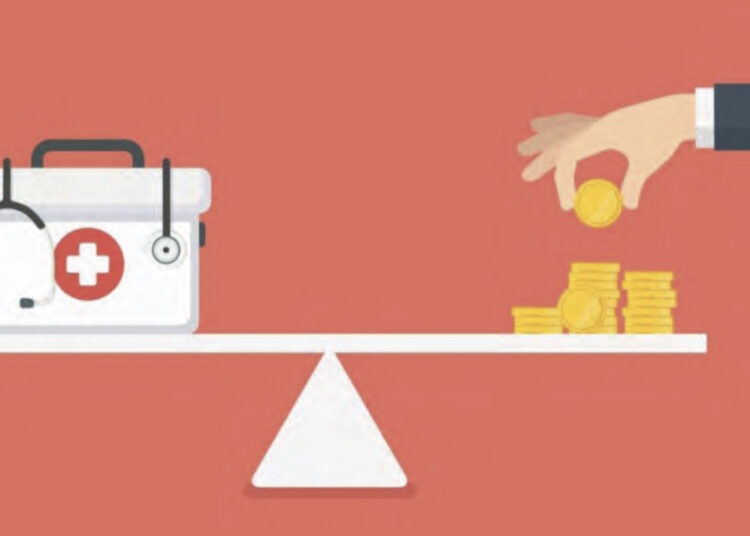It is indeed a nightmare to be sick in a country like Nigeria. The reason for that is not far-fetched, as the price of drugs has skyrocketed in recent time.
The worst hit are Nigerians living with non-communicable diseases like diabetes and hypertension, as they have to take drugs on a daily basis to keep these health conditions in check.
For instance, findings have shown that the average cost of diabetes treatment per person in Nigeria has increased from N60,000 in 2011 to N300,000 in 2021. This is even as the International Diabetes Federation (IDF) projects that this cost will surpass N500,000 in 2030 and exceed N1 million by 2045. The average cost of insulin, ranges between N4,000 and N18,000 per cartridge/vial, depending on the brands.
Yet, the number of Nigerians living in poverty stands at over 133 million, representing 63 per cent of the nation’s population, according to the National Bureau of Statistics(NBS) in its ‘Nigeria Multidimensional Poverty Index’ report.
From this figure above, it is sad to note that majority of Nigerians living with diabetes for instance, may not have the financial muscles to keep up with their treatments.
Why Prevention Is Better Than Cure
Meanwhile, just as the saying goes, ‘Prevention is better than cure. Health experts have said, with lifestyle modification, conditions like diabetes can be prevented.
For instance, one is more likely to develop type 2 diabetes if he is not physically active and is overweight or has obesity, public health expert, Dr Francis Fagbule, told LEADERSHIP, even as he disclosed that extra weight sometimes causes insulin resistance and is common in people with type 2 diabetes.
A study titled: ‘Drink soda, gain weight: Sugary beverages very clearly tied to obesity’ reviewed 85 studies from the past decade that linked sugary beverages and weight gain among adults and children.
“Being overweight or obese increases a person’s risk for several health problems, including diabetes, heart disease and cancers. One of the reasons for these negative health outcomes is the makeup of added sugar,” the study stated.
“But if one can lead a healthy life style which include healthy movement (like walking, sports, dancing, yoga or running); eating a well-balanced, low-fat diet with lots of fruits, vegetables, and whole grains and prioritising diet that is low in saturated fat and cholesterol, moderate in salt and total fat and having enough sleep, he can beat diabetes and hypertension, among others. So rather than taking sugary beverages, take water,” Fagbule advised.
On the importance of healthy diet to the body, the 2022 National Food Consumption and Micronutrient Survey revealed that, in Nigeria, 55 per cent of adolescent girls and women suffer from anaemia while nearly half of the Nigerian women of reproductive age do not consume the recommended diet of at least five out of 10 food groups (grains and tubers, pulses, nuts and seeds, dairy, meat, poultry and fish, eggs, dark green leafy vegetables, other vitamin A rich fruits and vegetables, other vegetables and other fruits).
Inadequate nutrition during girls’ and women’s lives can lead to weakened immunity, poor cognitive development, and an increased risk of life-threatening complications – including during pregnancy and childbirth – risking mother’s lives, also, with dangerous and irreversible consequences for their children’s survival, growth, learning, and future earning capacity, the report disclosed.
In Nigeria for instance, 12 million children under 5 are stunted, meaning they are too short for their age due to malnutrition. Of those, about half become stunted during pregnancy and the first six months of life, the 500-day period when a child is fully dependent on maternal nutrition, according to a new analysis in the report.
A lecturer from the department of Human Nutrition and Dietetics at the University of Osun (UNIOSUN), Dr. Olubukola Omobuwa, posited that malnutrition is known to contribute to about 50 per cent of deaths among children under the age of five in Nigeria.
Highlighting the importance of proteins to human beings, Omobuwa urged Nigerians to take in at least 53.8g of protein daily as recommended by Food and Agriculture Organisation (FAO); adding that, complete proteins are those which contain all essential amino acids, such as animal products, soy, and quinoa.
Besides its numerous health benefits, protein consumption contributes significantly to economic development by promoting sustainable farming practices and supporting small-scale farmers can boost productivity, generate income, and thus contribute to improved lives and livelihood and poverty reduction, Omobuwa added.










